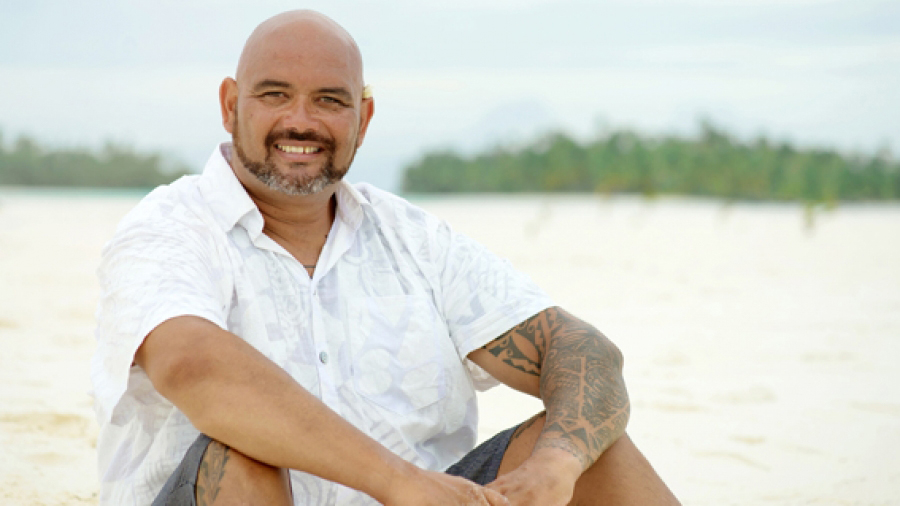Thomas Wynne: The people of the land and ocean
Saturday 1 June 2024 | Written by Thomas Tarurongo Wynne | Published in Editorials, Opinion

Columnist Thomas Tarurongo Wynne. Photo: CI NEWS/16040843
Land – nothing is more contentious, beautiful, divisive, or unifying than land. Our caretaking of land has been thousands of years in the making as we moved from Moana or ocean, to land, to ocean, and back to land again, writes Thomas Tarurongo Wynne.
As the Vaka Marumaru Atua makes landfall in the kingdom of Hawaii, as well as the Vaka Faafaite o Mā’ohi from Tahiti Nui, we are reminded of this fact. We are people of the Ocean, of the moana, as well as people of the Enua, Fenua, whenua, and land.
The two are inextricably woven into our stories of each other – of conquest, betrayal, warfare, and love returned or dismissed. And as our Vaka reaches the shores of Hawai’i, we are reminded again of our connection as Māori, Māo’hi, and Kanaka Maoli. We are connected by Vaka, by the bloodlines of Ariki, Ari’i and Ali’i, of voyagers and Tu Oe, Navigators, Ta’unga, Priests, and Gods from a time past that is captured in our oral traditions, chants, Pe’e, and Karakia.
This is why we should reconsider the colonial dog tags of Polynesian, though we have and still use this term. Neither are we Pasifika, Pacific, or of the Pacific or Passive Ocean. We are not Pacific Islanders or Islanders for that matter because an island is only half of our story when we are, in fact, of the land and of the ocean.
It is why we should also reconsider terms like small island developing states, a term used by others for ourselves. When one has sailed upon the vastness of Moana nui O Kiva, one realises in the very marrow of who we are that there is nothing small about Te Ao Māori or the world in which we live and have our being.
Others have said small, others have framed us around the lightness of our skin or darkness, and others have said we are but little islands scattered with no connection throughout an ocean they called Passive, not us.
As we return from the land of my Vouvou and Grandfather Teavae Tarurongo, I watched with a great sense of pride as our mother and uncle stood on the land of their father and recited their genealogy, acknowledging who they were and who they were connected to. In the court of law, they succeeded our grandfather Teavae Tarurongo to his lands. Now as toketoke Enua, we went from the land court to the Moana, to the ocean waves of Matai Bay, where for the first time, they felt the surge of ocean swells envelop them, baptising them in the waters of Enuamanu.
In that moment, we all were enveloped by the deep sense of significance we felt as succession to land also meant succession to the moana, waters, rivers, pai taro, planting grounds, caves at Anatakitaki, and homestead of our Ara Metua in Areora Punakau, Enuamanu. It is this deep connection to land that we sometimes take for granted as our birthright from one generation to the next, which our teina in Aotearoa have had stripped from them by dishonest and land hungry Crown and land agents.
Nonetheless, we here in the Cook Islands know how essential land is to our sovereignty and succession as people of the land and from the land. It is more than just soil, though we plant on it also. It is more than just somewhere to build a dwelling and shelter, though we have done that as well. And it is more than just a dividend or rental income, though for some, sadly, that is exactly what it has become.
When land is just a commodity, it loses its true value and becomes instead, a thing to be sold and traded. For that to happen, however, the first transaction occurs within our hearts. Because deep in our heart, is where we must first sell and trade our identity, sell and trade who we are, and sell and trade our eyes and heart that see and feel our world, as Māori, for the seductive dollar. Severing the one critical thing that connects us to the land, our Pito Enua, and replacing it with the Pito Moni.














































